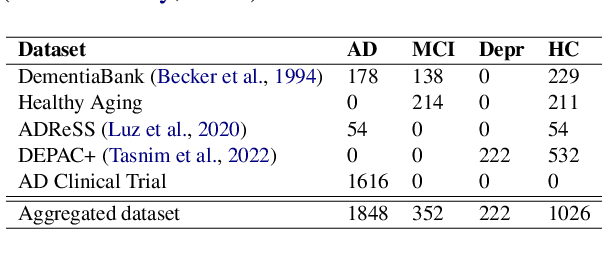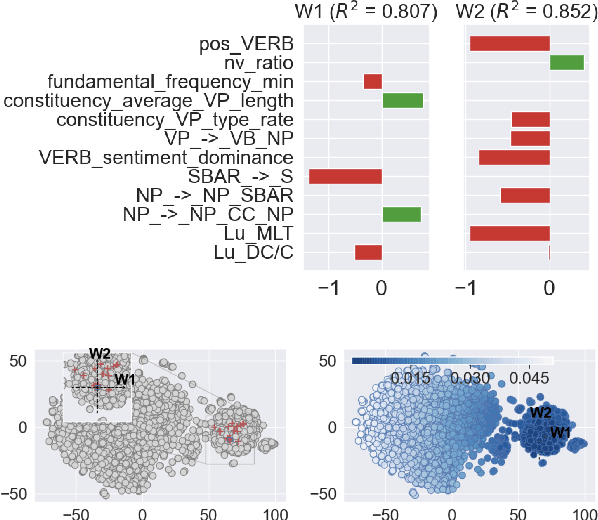Data-driven Approach to Differentiating between Depression and Dementia from Noisy Speech and Language Data
Paper and Code
Oct 07, 2022



A significant number of studies apply acoustic and linguistic characteristics of human speech as prominent markers of dementia and depression. However, studies on discriminating depression from dementia are rare. Co-morbid depression is frequent in dementia and these clinical conditions share many overlapping symptoms, but the ability to distinguish between depression and dementia is essential as depression is often curable. In this work, we investigate the ability of clustering approaches in distinguishing between depression and dementia from human speech. We introduce a novel aggregated dataset, which combines narrative speech data from multiple conditions, i.e., Alzheimer's disease, mild cognitive impairment, healthy control, and depression. We compare linear and non-linear clustering approaches and show that non-linear clustering techniques distinguish better between distinct disease clusters. Our interpretability analysis shows that the main differentiating symptoms between dementia and depression are acoustic abnormality, repetitiveness (or circularity) of speech, word finding difficulty, coherence impairment, and differences in lexical complexity and richness.
 Add to Chrome
Add to Chrome Add to Firefox
Add to Firefox Add to Edge
Add to Edge